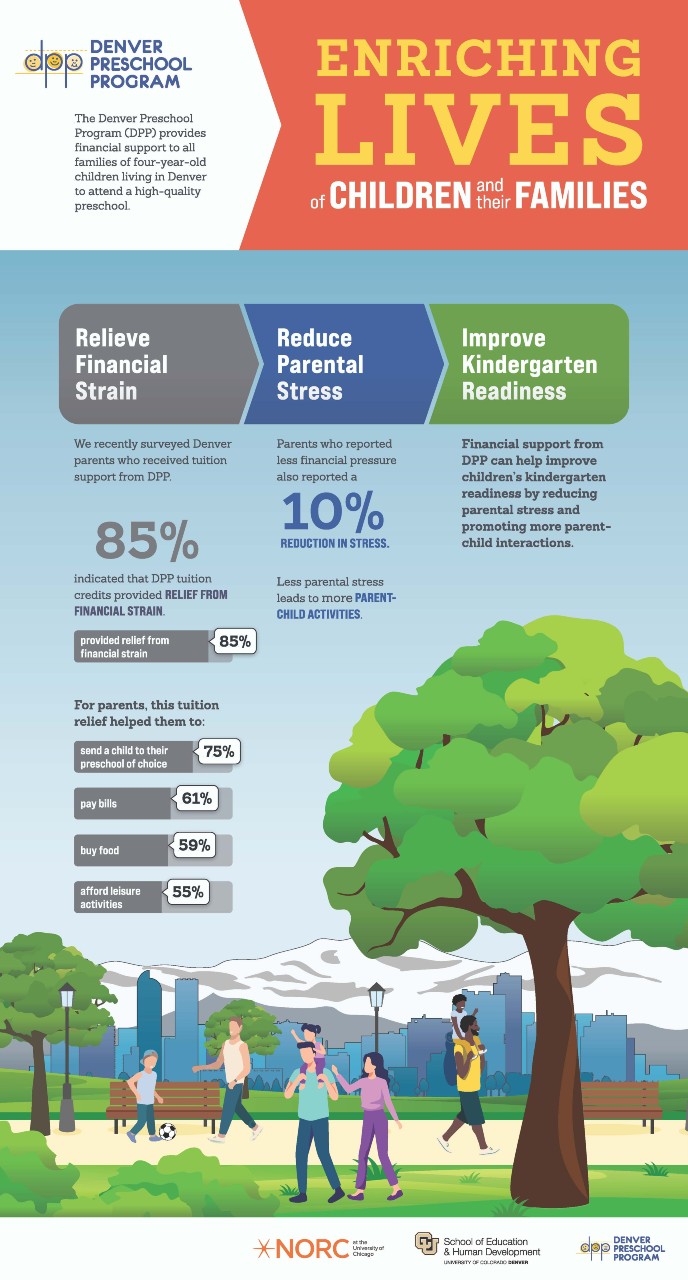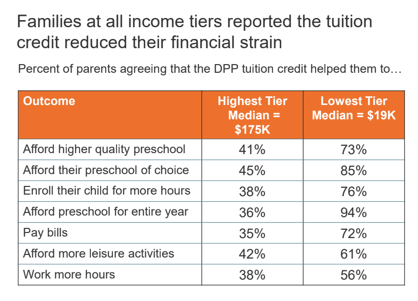DPP Tuition Credits Reduce Parental Stress, Benefit Families From All Income Levels
Denver Preschool Program (DPP) has engaged in years of research that consistently shows that DPP tuition credits lead…

Denver Preschool Program (DPP) has engaged in years of research that consistently shows that DPP tuition credits lead to many positive outcomes for children. But what about their families?
New research now shows that DPP tuition credits are also making an impact for parents of those students. From reduced parental stress to less financial strain, families from all income levels are reaping the benefits.

“DPP [tuition credits] allowed us to more easily afford full-time preschool, which has allowed both parents to work,” said a Denver mother whose child recently received DPP tuition credits. “Additionally, full-time preschool has been amazing for our daughter’s social development and skills. She started kindergarten this past year and was very prepared.”
The research, led by the National Opinion Research Center (NORC) – University of Chicago and the School of Education and Human Development at the University of Colorado, Denver, was based on surveys of 334 parents. The surveys assessed parents’ financial strain, stress, and caregiving relations and practices. The results show that:
- 85% of families indicated that DPP tuition credits provided relief from financial strain.

- Tuition credits from DPP can help improve children’s kindergarten readiness by reducing parental stress and promoting more parent-child interactions. The evaluation team analyzed students’ Child Executive Function Inventory (CHEXI) and Devereaux Early Childhood Assessment (DECA) results together with the family stress model to make comparisons between the survey insights and linked outcomes. Specifically, DPP tuition credits reduced parental stress which leads to improved parent-child interactions and activities. These improved parent-child relationships boost children’s working memory, self control, and protective factors, all of which contribute to kindergarten readiness. In fact, children from lower-stress families outperformed children from higher stress families by 19 to 23 percentile points.
The research also shows that with more disposable income, families are more likely to reinvest money into the local economy, like paying bills, buying food, and engaging in more leisure activities.
“We were really surprised we were eligible for DPP funding,” said a Denver mother of two children. “Tuition credits allowed us to enroll our child in full-time preschool and made it possible for both my husband and me to work full-time. It also allowed us to do some other activities and extra things with our daughter, like basketball and soccer programs.”
These research efforts are the latest insights showing the impact of DPP tuition credits. DPP’s evaluation team has years of research and data to learn more about the impact of DPP’s work and identify areas for improvement.


